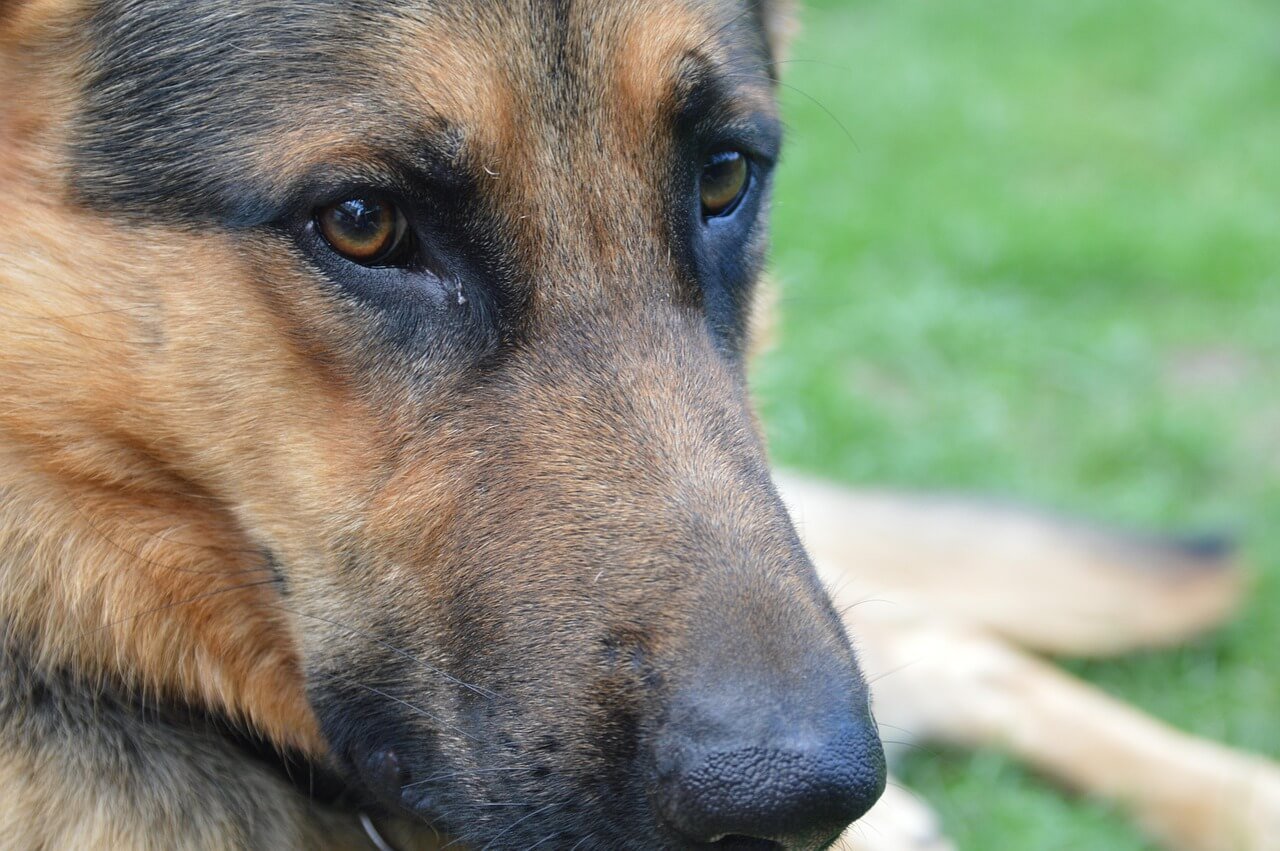How to Train a German Shepherd: A Step-by-Step Guide for Success
German Shepherds are one of the most intelligent, loyal, and versatile dog breeds in the world. Whether you’re looking for a family companion, a working dog, or a protector, a well-trained German Shepherd can fit seamlessly into your life. However, training a German Shepherd requires patience, consistency, and a solid understanding of their unique personality and needs. Known for their high energy, strong instincts, and eagerness to please, German Shepherds thrive when given structure and positive reinforcement. In this blog post, we’ll explore how to train a German Shepherd effectively, from basic obedience to advanced commands. By following these tips, you’ll build a strong bond with your dog while ensuring they grow into a well-behaved and confident companion.
Key Principles of Training a German Shepherd
Before diving into specific training techniques, it’s important to understand the foundational principles that make German Shepherd training successful. These principles ensure that your dog learns quickly and enjoys the process. Here are the key elements to keep in mind:
Positive Reinforcement
Reward good behavior with treats, praise, or toys to encourage your German Shepherd to repeat desired actions.Consistency is Key
Use the same commands and routines every time to avoid confusing your dog during training sessions.Short and Focused Sessions
Keep training sessions to 10–15 minutes to maintain your dog’s attention and prevent boredom.Start Early
Begin training as early as possible—ideally during puppyhood—to establish good habits from the start.Patience and Persistence
German Shepherds are smart but can be stubborn at times; stay patient and persistent to overcome challenges.
By adhering to these principles, you set the stage for effective and enjoyable training sessions. Remember, training is not just about teaching commands—it’s about building trust and communication with your dog.
Basic Commands Every German Shepherd Should Learn
Teaching your German Shepherd basic commands lays the foundation for good behavior and ensures they respond reliably in various situations. Here are the essential commands to focus on during training:
Sit
Teach your dog to sit by holding a treat above their head and rewarding them when they naturally lower into a seated position.Stay
Encourage your dog to remain in one spot until you release them, using verbal cues and hand signals.Come (Recall)
Practice calling your dog to you with a cheerful tone and rewarding them generously when they respond.Down
Guide your dog into a lying position by luring them with a treat and rewarding them once they comply.Leave It
Train your dog to ignore distractions like food or objects by using the “leave it” command paired with rewards for compliance.
Mastering these basic commands will give you greater control over your German Shepherd’s behavior and create a strong foundation for more advanced training. Consistency and repetition are key to success.
Check this guide 👉The German Shepherd Rottweiler Mix: Best 7 Expert Tips!
Check this guide 👉German Shepherd Husky Mix: Best 7 Expert Tips!
Check this guide 👉Malinois Dog vs German Shepherd: Best 7 Expert Tips!

Basic Commands for German Shepherds | Benefits of Each Command |
|---|---|
Sit | Helps with calming and focusing your dog |
Stay | Ensures safety in potentially dangerous situations |
Come (Recall) | Keeps your dog safe off-leash |
Down | Encourages relaxation and submission |
Leave It | Prevents unwanted behaviors and accidents |
Advanced Training Techniques for German Shepherds
Once your German Shepherd has mastered basic commands, you can move on to more advanced training techniques. These exercises challenge their intelligence and strengthen your bond even further. Here are some ideas to take their skills to the next level:
Agility Training
Set up obstacle courses with tunnels, jumps, and weave poles to improve physical fitness and mental stimulation.Scent Work
Tap into their natural tracking abilities by teaching them to identify and locate specific scents.Guard Dog Training
Teach protective behaviors like barking on command or patrolling areas under supervision.Service Tasks
Train your German Shepherd to perform specific tasks, such as retrieving items or assisting individuals with disabilities.Off-Leash Training
Work on reliable off-leash recall and distance control in safe, enclosed environments.
Advanced training not only enhances your dog’s capabilities but also provides mental enrichment and prevents boredom. Always tailor activities to your dog’s interests and abilities.
Common Mistakes to Avoid When Training a German Shepherd
Even experienced trainers can make mistakes when working with German Shepherds. Being aware of common pitfalls helps you avoid setbacks and ensures a smoother training process. Here are some errors to watch out for:
Using Harsh Punishments
Physical corrections or yelling can damage your dog’s trust and create fear-based responses.Skipping Socialization
Failing to expose your German Shepherd to new people, animals, and environments can lead to anxiety or aggression.Overtraining
Long, repetitive sessions can overwhelm your dog and reduce their motivation to learn.Inconsistent Rules
Allowing certain behaviors one day and punishing them the next confuses your dog and slows progress.Ignoring Breed-Specific Traits
Neglecting their need for exercise, mental stimulation, or leadership can result in behavioral issues.
By avoiding these mistakes, you create a positive and productive learning environment for your German Shepherd. Training should be fun and rewarding for both you and your dog.
Fun Facts About German Shepherds and Their Trainability
German Shepherds are renowned for their intelligence and versatility, which makes them one of the most trainable breeds. Here are some fascinating facts about their trainability and unique traits:
Ranked Third Smartest Breed
According to canine intelligence studies, German Shepherds rank third in overall intelligence, behind Border Collies and Poodles.Used in Elite Roles Worldwide
Their exceptional trainability has made them a top choice for police, military, and search-and-rescue operations globally.Quick Learners
German Shepherds can learn simple commands in as few as five repetitions, showcasing their ability to grasp new concepts rapidly.High Energy Equals High Focus
Their abundant energy translates into intense focus during training sessions, making them highly responsive.Versatile Athletes
From agility competitions to herding trials, German Shepherds excel in various activities due to their physical and mental capabilities.
These fun facts highlight why German Shepherds are such a popular breed for training. Their natural talents and adaptability make them a joy to work with, whether you’re teaching basic commands or advanced skills.
Tips for Socializing Your German Shepherd During Training
Socialization is a critical component of training that ensures your German Shepherd grows into a confident and well-adjusted adult dog. Here are some tips to help you socialize your dog effectively:
Introduce New People Gradually
Expose your German Shepherd to different ages, genders, and appearances to prevent fear or aggression toward strangers.Arrange Playdates with Other Dogs
Controlled interactions with friendly, vaccinated dogs teach proper canine etiquette and reduce territorial behavior.Visit Various Environments
Take your dog to parks, pet-friendly stores, or busy streets to acclimate them to diverse sights, sounds, and smells.Use Positive Reinforcement
Reward calm and curious behavior during socialization to reinforce positive associations with new experiences.Stay Calm and Confident
Your demeanor influences your dog’s reaction; remain relaxed and composed to reassure them in unfamiliar situations.
Proper socialization prevents behavioral issues like fear-based aggression or anxiety. By exposing your German Shepherd to the world in a controlled and positive way, you set them up for success in all aspects of life.
Signs That Your German Shepherd Is Ready for Advanced Training
Knowing when your German Shepherd is ready to progress to advanced training ensures they have the foundation needed to succeed. Here are some signs that indicate your dog is prepared for more challenging tasks:
Mastery of Basic Commands
Your dog consistently responds to commands like “sit,” “stay,” and “come” in various environments without hesitation.Strong Focus and Attention
They maintain eye contact and stay engaged during training sessions, even in distracting settings.Eagerness to Learn
Your German Shepherd shows enthusiasm and curiosity when presented with new challenges or exercises.Good Physical Condition
They are physically fit and energetic enough to handle the demands of advanced agility or endurance tasks.Confidence Around People and Animals
Your dog remains calm and composed when interacting with strangers or other animals, indicating solid socialization.
Recognizing these signs helps you determine the right time to introduce advanced training. Pushing too quickly can lead to frustration, while waiting too long may hinder their development. Trust your instincts and celebrate your dog’s readiness for the next step!
Frequently Asked Questions About Training a German Shepherd
How long does it take to train a German Shepherd?
Basic obedience training typically takes 2–6 months, depending on consistency and the dog’s age. Advanced training can take longer.
Can I train my German Shepherd myself?
Yes, with dedication and proper techniques, you can train your German Shepherd at home. Professional classes can also help.
Are German Shepherds hard to train?
No, they are highly intelligent and eager to please, making them relatively easy to train with the right approach.
What age should I start training my German Shepherd?
Start basic training as early as 8–12 weeks old, but continue reinforcing lessons throughout their life.
How do I stop my German Shepherd from biting?
Redirect biting behavior to chew toys and reward calm behavior to teach appropriate play habits.
Building a Lifelong Bond Through Training
Training a German Shepherd is not just about teaching commands—it’s about fostering a deep connection based on trust, respect, and mutual understanding. By investing time and effort into their education, you unlock the full potential of this remarkable breed. Whether you’re teaching basic obedience, advanced tricks, or specialized skills, the process strengthens your relationship and enriches your dog’s life. Remember, patience, positivity, and consistency are the keys to success. With dedication and love, your German Shepherd will become a loyal and well-behaved companion who brings endless joy to your household. Embrace the journey, celebrate small victories, and enjoy every moment of training your amazing German Shepherd!
Do Cats Have Taste Buds? Best 7 Expert Tips! – Discover how cats experience flavors and why their taste is so unique.
Do Dogs Have Taste Buds? Best 7 Expert Tips! – Discover how dogs experience taste, their preferences, and what it means for their diet and health.
Can Cats Taste Sweet? Best 7 Expert Tips! – Discover why cats can’t taste sweetness, how it affects their diet, and tips to keep them healthy and happy.
Can Dogs Taste Sweet? Best 7 Expert Tips! – Discover how dogs perceive sweetness, which foods are safe, and tips to manage their sweet cravings responsibly.





